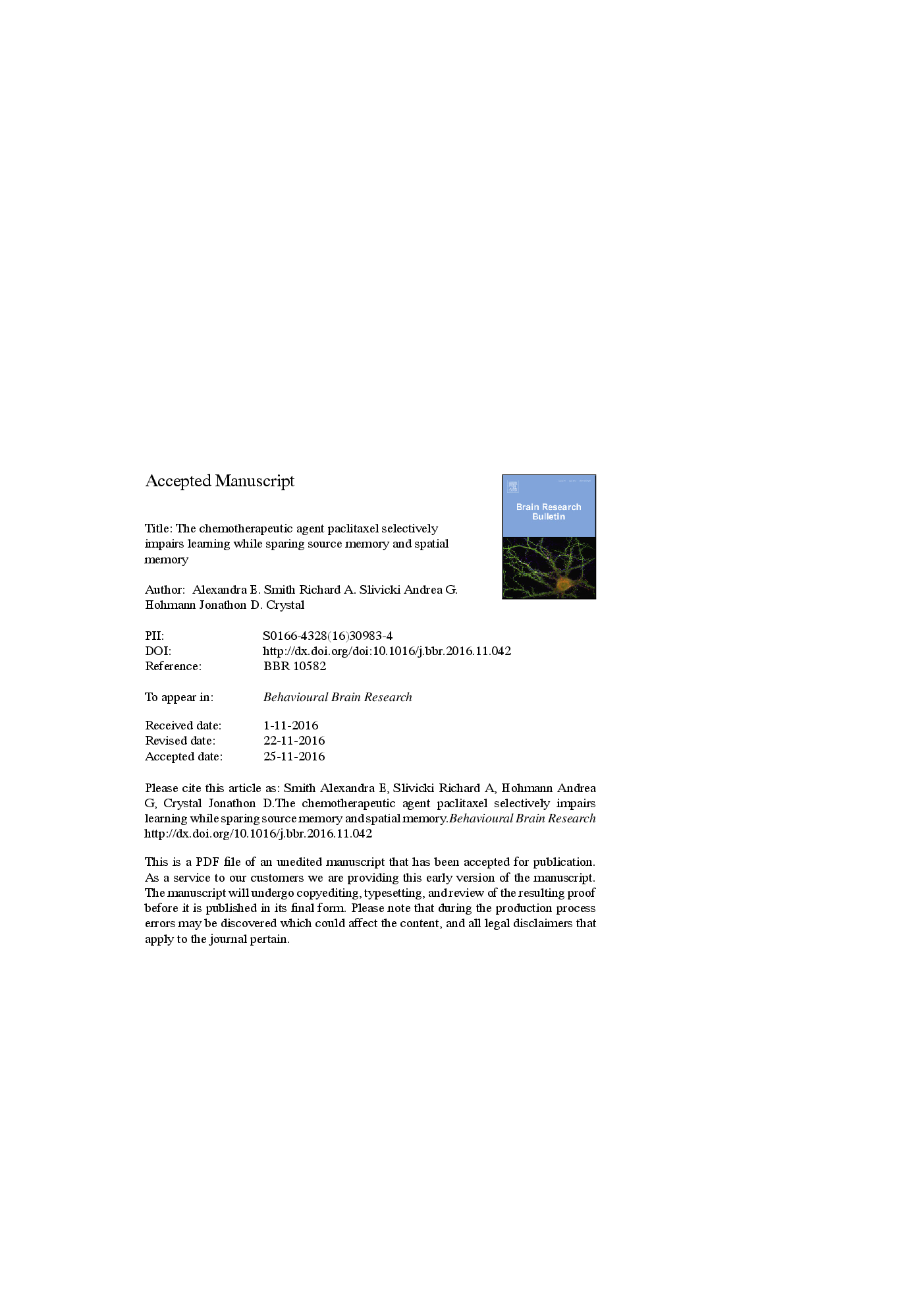ترجمه فارسی عنوان مقاله
پکت لیپتاکسل عامل شیمی درمانی به طور انتخابی یادگیری را مختل می کند در حالی که صرفه جویی در حافظه منبع و حافظه فضایی را مختل می کند
عنوان انگلیسی
The chemotherapeutic agent paclitaxel selectively impairs learning while sparing source memory and spatial memory
| کد مقاله | سال انتشار | تعداد صفحات مقاله انگلیسی |
|---|---|---|
| 119434 | 2017 | 30 صفحه PDF |
منبع

Publisher : Elsevier - Science Direct (الزویر - ساینس دایرکت)
Journal : Behavioural Brain Research, Volume 320, 1 March 2017, Pages 48-57
ترجمه چکیده
عوامل شیمی درمانی برای درمان بیماران مبتلا به سرطان سیستمیک به طور گسترده ای مورد استفاده قرار می گیرند. اثربخشی این درمان ها توسط پروفیل های جانبی جانبی جانبی مانند نقص شناختی که تاثیر منفی بر کیفیت زندگی بازماندگان سرطان دارد، تحت تاثیر قرار می گیرد. عوارض شناختی در سراسر حوزه های مختلف، از جمله حافظه، عملکرد اجرایی و سرعت پردازش رخ می دهد. چنین اختلالاتی تحت چالش های شناختی تشدید می شوند و یک زیر گروه از بیماران دچار اختلالات طولانی مدت می شوند. حافظه اپیزودیک در موشها می تواند با استفاده از یک کار حافظه منبع بررسی شود. در مطالعه حاضر، موش صحرایی پلاکتاشل، یک عامل شیمیایی مشتق شده از تاکسون دریافت کرد و عملکرد یادگیری و حافظه با استفاده از کارکرد حافظه منبع مورد بررسی قرار گرفت. درمان با پلاکتکسل حافظه فضایی و اپیزودیک را تحت تاثیر قرار نمیدهد و موشهای تحت درمان با بستهی لیتکسل بیشتر به چالشهای شناختی حساس نیستند. تحت شرایطی که در آن حافظه نقص نداشت، درمان پکلایتاکسل موجب کاهش یادگیری قوانین جدید شد و حساسیت کاهش یافته به تغییرات احتمالی تجربی را ثبت نمود. این یافته ها اطلاعات جدیدی را درباره ماهیت اختلالات شناختی ناشی از شیمیدرمانی سرطان، به خصوص در مورد آسیب پذیری غیرمعمول حافظه اپیزودیک و یادگیری جدید پس از درمان با پلاکتکسل، ارائه می دهد.

